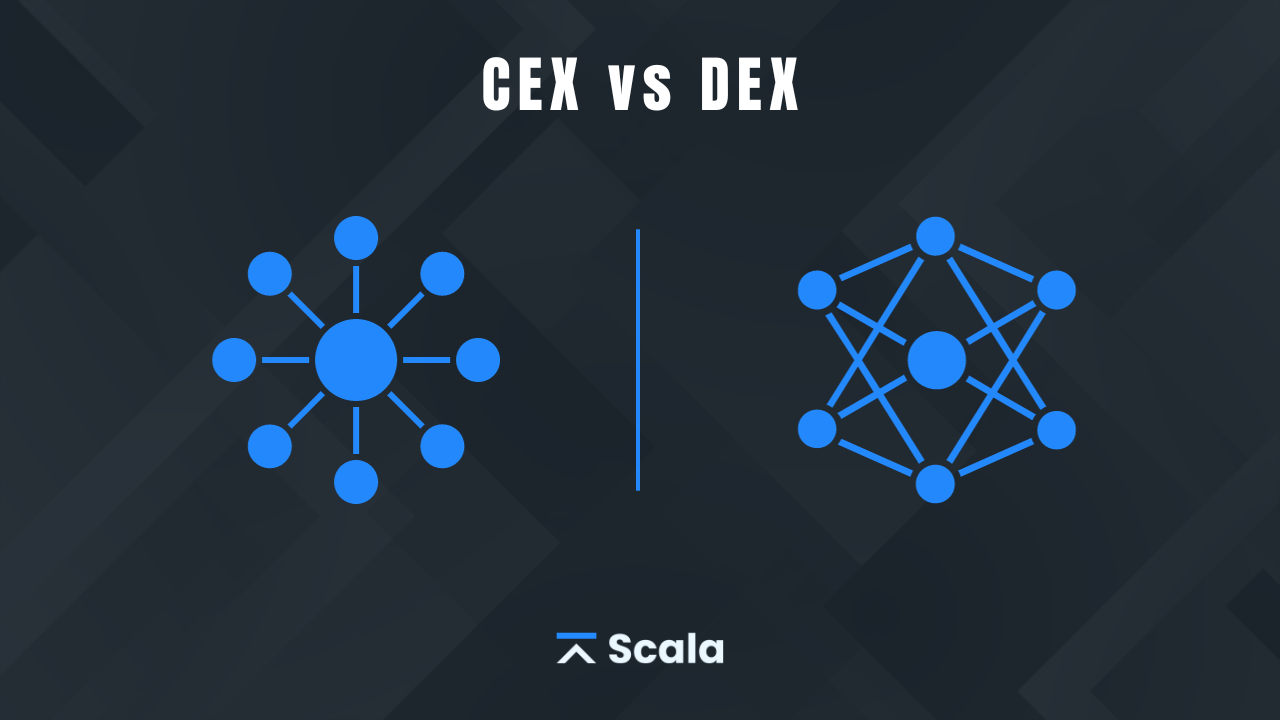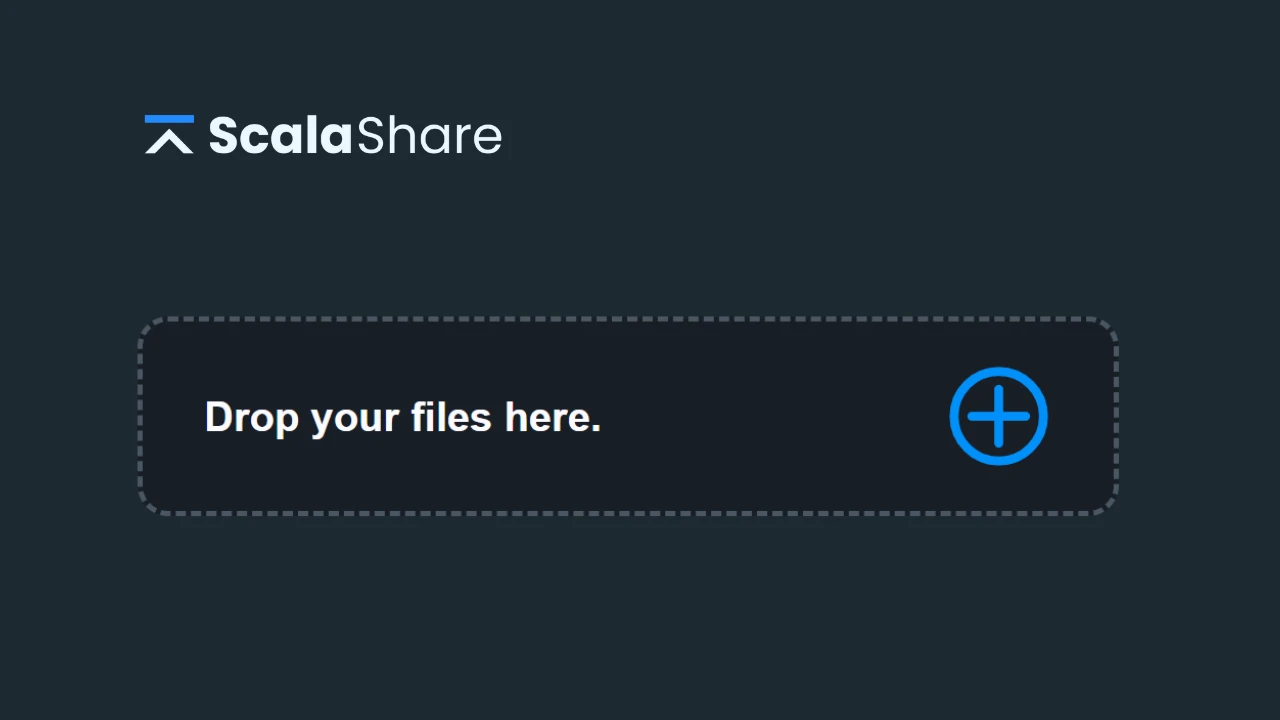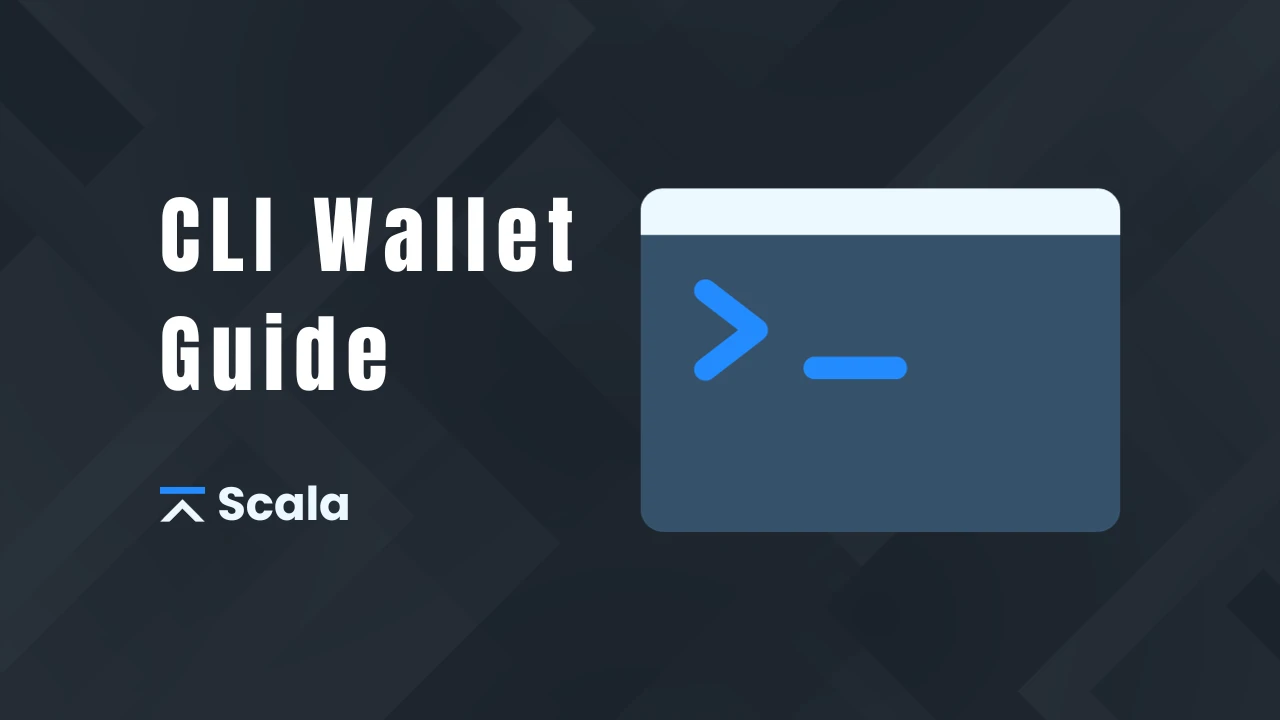
Introduction
The world of cryptocurrency trading offers a myriad of possibilities, and at the heart of this dynamic landscape are two distinct types of exchanges: Centralized Exchanges (CEX) and Decentralized Exchanges (DEX). In this exploration of the Scala ecosystem, we delve into the differences between these two exchange types, examining their advantages, disadvantages, and ultimately helping you make an informed choice tailored to your preferences.
CEX Unveiled
Centralized Exchanges operate on their own hardware and are facilitated by external parties. The advantages of CEX lie in liquidity and security. With multiple third parties involved, liquidity is virtually limitless, enabling users to buy and sell tokens at any time. However, the convenience of constant liquidity comes at a cost, as more intermediaries mean more shares to be distributed. Despite these considerations, CEX remains a powerhouse for fiat transactions and seamless trading capabilities.
Pros of CEX
- Operations with fiat currency are supported.
- High liquidity ensures easy buying and selling.
- Robust capabilities for trading.
Cons of CEX
- Lack of access to private keys.
- Increased security risk due to susceptibility to hacking threats.
- Verification requirements may pose a hurdle.
DEX Unveiled
Decentralized Exchanges, on the other hand, operate without a central governing institution, offering privacy and direct control over your crypto assets. With non-custodial wallets, users enjoy ownership without the interference of an intermediary. Privacy and security are paramount, with the assurance that even in the event of a DEX disruption, your assets remain secure in your wallet.
Pros of DEX
- Full control and ownership of assets and private keys.
- Access to a diverse range of coins for exchange.
- Anonymity is maintained during transactions.
Cons of DEX
- Lack of support for fiat transactions.
- Lower liquidity compared to CEX.
- Smart contracts may pose security concerns.
Scala Exchanges
Trade XLA effortlessly on your terms — whether you prefer centralized or decentralized exchanges, the power is in your hands! Simply choose the exchange you prefer by heading to https://scala.network/get-xla/.
Conclusion
In the realm of Scala, the choice between CEX and DEX hinges on individual preferences and priorities. CEX platforms excel in user-friendliness, trading capabilities, and resilience against cyber threats. Conversely, DEX platforms champion privacy, direct ownership, and participation in yield farming opportunities.
Ultimately, the decision rests on your specific needs and values within the ever-evolving Scala ecosystem. Stay informed, stay engaged, and continue to explore the vast possibilities of the crypto world with Scala. Stay tuned for more insights and updates on the Scala Blog!



